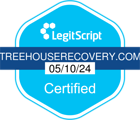Psychology professor Marsha Linehan from the University of Washington told Today News in 2018, “Suppressing what you want is not the way to go. You have to radically accept that you want something you don’t have and it’s not a catastrophe. Reality is what it is.”
For many people in addiction recovery, pain is a longstanding, emotional wound that has taken up space in the mind and heart for quite some time. Trauma, broken relationships, and major life events have left many emotionally paralyzed, which often leads them to abuse substances in an attempt to move away from that pain. Unfortunately, that distraction is only temporary, as the feelings within still linger over time. While in addiction recovery, dialectical behavioral therapy (DBT) helps people move forward from unhealthy, compulsive behaviors and towards much-needed coping mechanisms to uplift their mind, body and spirit.
A key phrase that could sum up DBT is, “accepting life as-is, rather than what life is supposed to be.” As The Fix notes, DBT incorporates mindfulness, which reels people into the present moment, without thoughts of judgment but rather thoughts of awareness. There are 4 main components of DBT:
– Mindfulness
– Interpersonal relations
– Emotion regulation
– Distress tolerance
How does it work? Most often, our emotions get to us first through a triggering event. Our immediate response is often to react by saying to ourselves that we can’t tolerate the emotion we’re experiencing, and so we quickly turn to unhealthy habits in an attempt to deal with those emotions (such as with alcohol or other substances). Since it distracts us or helps us feel relief for at least a short period of time, we continue doing it – and that’s where the negative cycle gains power. DBT combats this cycle by educating us on how we let ourselves fall into the trap, along with some healthy ways to get out of it.
DBT gives us the power to respond to those uncomfortable emotions in a grounded way, and that’s what many people in addiction recovery need – especially to prevent relapse.
We believe in your ability to change. We know men struggling with addiction have the capacity to create transformative change in their lives, sustainably, building a sustainable sobriety and future. Call Tree House Recovery in Orange County, California today for information on our men’s addiction treatment programs: (855) 202-2138.






